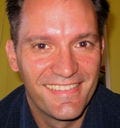The 5 Wisest Things People Have Told Me
Counsel I do my best to follow — not from books or bumper stickers, but from people important in my life:
“People will show you exactly who they are and what they’re made of, and they’ll do it when the chips are down.” My father, Henry Lemire (1930–2001), believed that you don’t always need to work hard to figure people out. When the going gets tough, he told me, people will show you how compassionate, generous, cooperative, and loving they are — or they’ll show you the opposite. My father urged me always to be charitable and forgiving, but also to be realistic: that is, to see people as they are and not as I may wish, want, or imagine them to be.
“The less you know, the more certain you are.” In 1987, Fr. William O’Malley, SJ (Father Dyer in the movie The Exorcist) was a visiting lecturer at Boston College. To develop our critical thinking skills, Fr. O’Malley repeatedly invoked this adage. Certainty — or what we think is certainty — can be a seductively comfortable space. Our certainty can justify any number of prejudices, bad habits, or errors in judgment. Fr. O’Malley encouraged his students, then, to question, to listen and learn, and to cultivate a healthy skepticism of our own imagined brilliance before we declared ourselves “certain” about something or someone.
“Don’t only listen to what people say: listen to what they don’t say.” My mother, Jane Lemire (1930–2016), encouraged me to live life attentively. She told me always to listen to people but to pay closer attention to what was missing in the stories, the information, or the rationale they gave. For example, people can raise a storm of objections and never say “No,” and they can praise an idea all the livelong day without saying “Yes.” Granted, there’s a point at which you can over-analyze what people say, but as a general guideline, I believe what my mother taught me is true: that sometimes the most revealing thing people say is what they leave out or what they choose not to disclose. Speaking of which…
“Never volunteer information.” Also from my mother. Another way of putting this advice is to imagine yourself in the witness stand with the judge telling you, “Please confine your responses to the question asked.” My mother knew that sometimes — let’s say, a lot of the time — when we start talking, we end up telling people things that are either none of their business, irrelevant to the matter at hand, or an anagram of my own name: “TMI” (Too Much Information). A taciturn Yankee, my mother believed in erring on the side of polite circumspection.
“Want, wish for, hope for, work for, or dream of … but ‘expect’? And prepare to be disappointed.” Steve Robinson, a Massachusetts therapist, helped me see that when we deal with people and outcomes, our use of the words should, ought to, and supposed to reveals an expectation — a notion that if A happens, B must follow. There’s nothing wrong with desiring a certain outcome or hoping someone will behave a certain way, but if it doesn’t happen, it’s not because some cosmic law has been violated: it’s because someone else exercised free will, or the cookie crumbled beyond our control. To put Steve’s advice another way: “Expect nothing, and you’ll never be disappointed.”
I’m grateful to the people who shared their wisdom with me. My inspiration to write this essay was the opening chapter of Meditations by Marcus Aurelius, in which he catalogues the qualities he inherited and the things he learned from the people in his life. I encourage you to read Meditations — it’s more chock full of wisdom than this essay — and I recommend you buy the translation by Gregory Hays.
